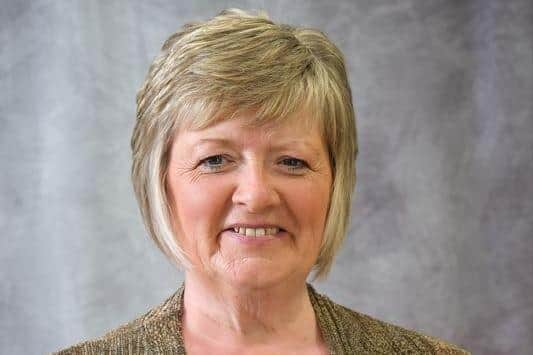Mid Ulster Council hears plea for retention of housing intimidation points
and live on Freeview channel 276
The scheme is a set of rules the NI Housing Executive uses when carrying out a housing assessment. It awards points based on need and places applicants on a waiting list for a home. If a person gets intimidation points they are given additional points.
Mid Ulster District Council had been asked to issue a response regarding future provision for victims of violence, including victims of domestic abuse, within the Northern Ireland Housing Selection Scheme.
Advertisement
Hide AdAdvertisement
Hide AdThe proposal to remove the intimidation points raised serious concerns.


District Chairman, Councillor Dominic Molloy outlined those concerns as follows by way of response on behalf of the local authority: “Overall, the council feel that the proposal to remove the intimidation points from the Housing Selection Scheme was wrong, and they should be maintained to protect those who are genuinely at risk from intimidation.
“The council agree that the selection criteria should include people at risk from domestic abuse. There is a need to protect those facing serious and immediate threat to themselves and their family, and there should be robust verification of intimidation points by the police to ensure they are allocated appropriately to those at genuine risk, and to prevent others on the housing list (including those with homeless points) being unfairly disadvantaged.
“The council would also have concerns regarding the way in which this research is being conducted, and the failure to publicise it widely via victims support groups etc.
Advertisement
Hide AdAdvertisement
Hide Ad“Furthermore, Mid Ulster District Council area is vastly rural with a lack of available social housing. As such the council would recommend examining the contrast between urban and rural considerations when searching for housing solutions for victims of violence, and those at risk/under threat of violence, including victims of domestic abuse.


Abusive Situations
“Solutions employed in urban areas may not work in rural areas and alternatives should be considered. In addition, the council believes that current levels of domestic and sexual abuse in Northern Ireland are completely unacceptable, and hopes that this research will examine the impact on victims of domestic abuse who cannot leave abusive situations because of the current flaws within the NI Housing Selection Scheme.
“The council would also encourage a significant increase in social housing. This could alleviate some of the current issues within the NI Housing Selection Scheme, and also offer victims of violence additional options and choice in relation to relocation issues. Therefore, the council would recommend that additional consultation is carried out.”
Councillor Gael Gildernew (Sinn Féin, Clogher Valley) said she wholeheartedly endorsed the council’s response: “I am happy to propose the consultation response. I believe these [intimidation] points shouldn’t have been removed from the scheme, and the scheme should be broadened to include those at risk from domestic abuse.
Advertisement
Hide AdAdvertisement
Hide Ad

“SafeLives did commission a report in 2018, and found that approximately one third of homeless women stated that domestic abuse contributed to their homelessness. There’s a need to ensure adequate provision of emergency and refuge accommodation, as well as adequate access to safe housing in the Mid Ulster area.
“No survivor should be prevented from leaving their abuser due to the fear of facing homelessness, and often the assurance of safe housing can help them to break this cycle.”
Councillor Frances Burton (DUP, Clogher Valley DEA) seconded the proposal, and deplored that the popular Handy Van service – which is part of the AgeWell scheme – might be discontinued, when it offers invaluable assistance to victims of domestic violence.
She commented: “The statistics that we have in Mid Ulster for domestic violence against women – and sometimes against men as well – is absolutely horrific, and anything that we can do to try to lessen that is much needed.
Advertisement
Hide AdAdvertisement
Hide Ad“The crime prevention officer regularly gives locks, bolts, and those types of safety items to families, and it’s ironic that the Handy Van scheme of AgeWell that usually went out to fit those [is under threat]. We are really struggling to ensure that the Handy Van scheme is future-proofed, so I don’t know whether it’s an ideal opportunity where we could flag that as well.
“We have these Handy Van guys at the minute, and come March 31 the real fear is they will not be there. They do incredible work for the elderly, for the really vulnerable in our society, including those who suffer really badly with mental health.”
Chair of committee, Councillor Cora Corry (Sinn Féin, Carntogher DEA) concurred with the two previous speakers: “That is something that AgeWell do that people maybe aren’t aware of. They do fit different types of equipment for people who have suffered from domestic abuse.
“I think the consultation response there is very good, and [regarding] urban and rural differences, that’s definitely something I’ve come across with regards to temporary accommodation, where people are told, ‘The only accommodation that we have is Belfast or Derry’. I think it’s a good response and hopefully they’ll listen.”
François Vincent, Local Democracy Reporter